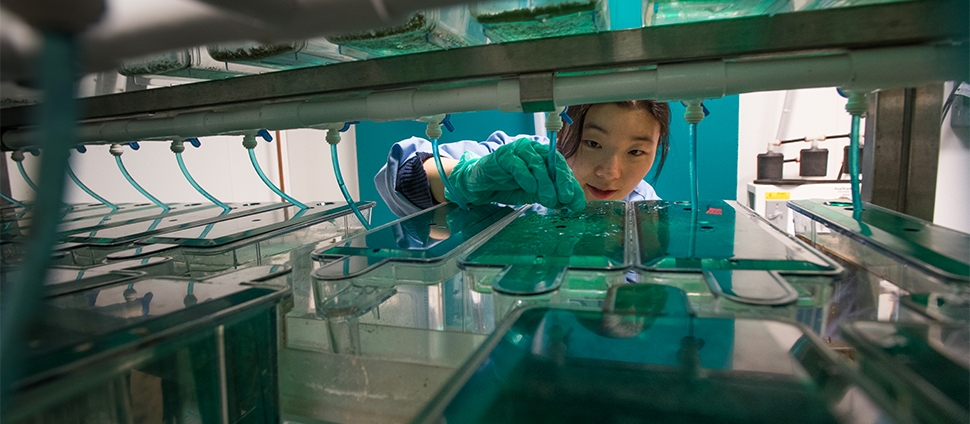Document Type
Article
Publication Date
1-1-2019
Publication Title
PeerJ
Abstract
Department of Ecology, Evolution, and Marine Biology, University of California, Santa Barbara, CA, United States of America ABSTRACT The surface mucus layer of reef-building corals supports feeding, sediment clearing, and protection from pathogenic invaders. As much as half of the fixed carbon supplied by the corals' photosynthetic symbionts is incorporated into expelled mucus. It is therefore reasonable to expect that coral bleaching (disruption of the coralfialgal symbiosis) would affect mucus production. Since coral mucus serves as an important nutrient source for the entire reef community, this could have substantial ecosystemwide consequences. In this study, we examined the effects of heat stress-induced coral bleaching on the composition and antibacterial properties of coral mucus. In a controlled laboratory thermal challenge, stressed corals produced mucus with higher protein (D 2:1, p < 0:001) and lipid content (D 15:7, p D 0:02) and increased antibacterial activity (likelihood ratio D 100, p < 0:001) relative to clonal controls. These results are likely explained by the expelled symbionts in the mucus of bleached individuals. Our study suggests that coral bleaching could immediately impact the nutrient flux in the coral reef ecosystem via its effect on coral mucus.
Keywords
Acropora cervicornis, Climate change, Coral bleaching, Coral reef, Mucus
Volume
2019
Issue
4
DOI
10.7717/peerj.6849
Creative Commons License

This work is licensed under a Creative Commons Attribution 4.0 International License.
Rights
2019 Wright et al.
Version
Version of Record
Recommended Citation
Wright, Rachel M.; Strader, Marie E.; Genuise, Heather M.; and Matz, Mikhail, "Effects of Thermal Stress on Amount, Composition, and Antibacterial Properties of Coral Mucus" (2019). Biological Sciences: Faculty Publications, Smith College, Northampton, MA.
https://scholarworks.smith.edu/bio_facpubs/179


